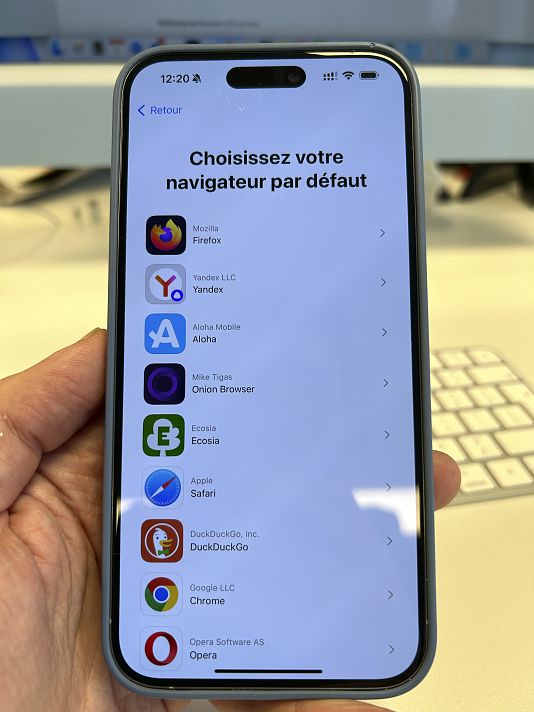European consumers can now choose their default browser and buy apps outside the Apple app store.
European consumers saw big changes to apps, social media, and webpages as the largest tech companies came into compliance with EU law this week.
The six companies designated as "gatekeepers" under the EU's Digital Markets Act needed to enforce the new rules by March 7, with the European Commission able to impose fines of up to 10 per cent of the company's global turnover in the event of an infringement.
Some of the changes for consumers in the EU included options to change their default browsers and new opportunities for where they can download iPhone apps.
The companies impacted are Amazon, Apple, Google parent company Alphabet, Meta, Microsoft, and TikTok owner ByteDance, which were designated "gatekeepers" in September 2023.
"Our new set of rules will now make online markets more open and contestable for small, innovative businesses to also get a fair chance of making it," Margrethe Vestager, Executive Vice-President in charge of competition policy, said in a statement.
"And as consumers, we will have more affordable options online. This will deeply change how online markets work and open up the digital marketplace, for the benefit of all European players, and users," she added.
What changes for European consumers?
The rules are impacting everything from Google Maps to messaging services such as WhatsApp and Facebook Messenger.
Google said in January that users in Europe would see an "additional consent banner to ask them whether some services can continue to share data for those purposes" as well as changes to search since they can't give preference to their services.
When users set up Androids or iPhones now, they will also be able to designate a default search engine.
Apple will also now let iPhone users download apps from outside their app store.
Meta, meanwhile, said that there would be changes to WhatsApp and Messenger, as the EU rules require interoperability between messaging systems, which the company said was a "technical challenge".
Europeans were also asked if they wanted to create a new Messenger account separate from Facebook.
Microsoft said users were now able to uninstall the Edge Browser and Bing web search and made changes to how it handles data associated with Windows.
Users of LinkedIn were asked if they wanted to disconnect certain services such as Jobs from their accounts.
The tech companies have to prove their compliance with the rules by outlining what measures they are taking in reports.
A public version of these reports will be available on a designated website.
On Thursday, the gatekeepers also "have to submit to the Commission an independently audited description of any techniques used for profiling consumers, along with a non-confidential version of the report".
"We have been in discussions with gatekeepers for months to help them adapt. And we can already see changes happening on the market: competitors can set up alternative app stores, European users have more control over their data and are now empowered to make choices they did not have before due to default settings," the EU's internal market commissioner Thierry Breton, said in a statement.
"Any company found to be non-compliant will face severe sanctions, including as last resort a breakup," he added.












